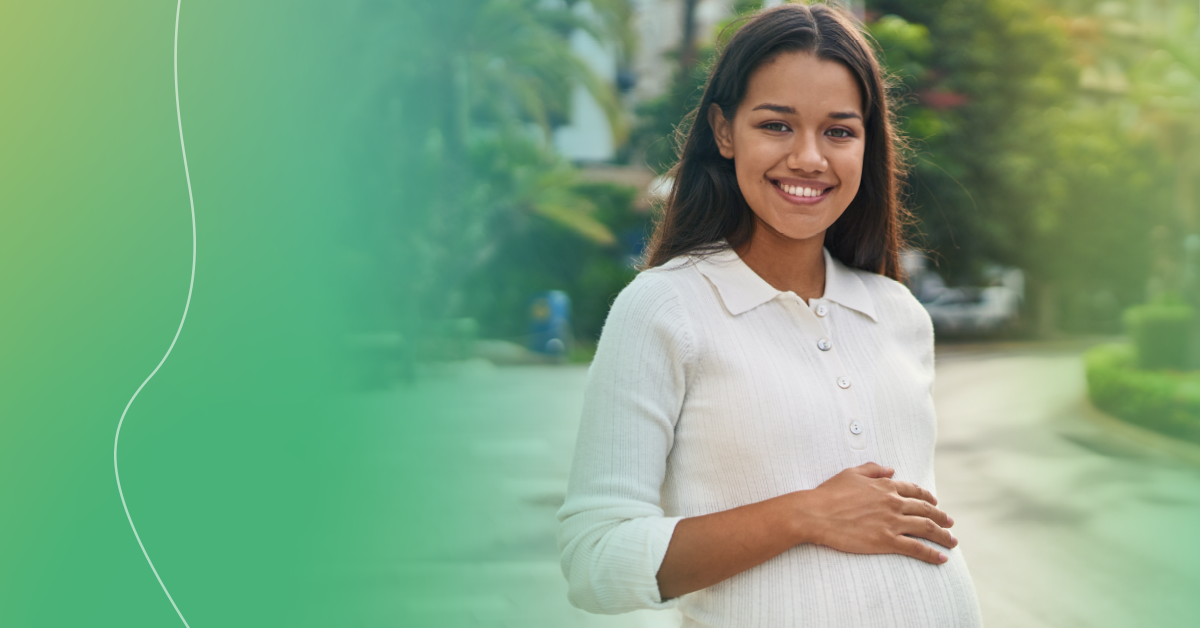To create a good environment for children’s development, a key early step is giving women and their families well-timed information, resources, and support during and after pregnancy. Amid a surge of innovations in pregnancy and postnatal care, we can make use of technology and other tools to make sure mothers and their babies are as healthy as possible.
Information and communication technologies, especially cell phones, are effective conduits for this type of support. A WhatsApp messaging support program in Uruguay has yielded clear evidence of this strategy’s success.
The importance of ongoing support in maternal care
Premature births remain a significant driver of infant morbidity and mortality worldwide. Complications from preterm birth are the leading cause of death among children under five and one of the main reasons for neurological, visual, hearing, motor, behavioral, and learning problems among children. Meanwhile, maternal depression during pregnancy and postpartum can jeopardize children’s socio-emotional and cognitive development. Around 15% of mothers have suffered this form of depression, and the rate can be even higher in socially vulnerable environments.
Cell phones provide quick, direct, and sustainable access to information and guidance resources that can be extremely useful for women and their families. Institutions devoted to the well-being and health of mothers and their young children can easily use this technology to share this information and even personalize messages and support resources.
The WhatsApp chatbot program in Uruguay
In 2018, Positive Parenting was implemented in Uruguay. This messaging program used WhatsApp to provide parenting support for families with children ages 0 to 3. It increased the time parents spent on educational and physical activities with their children, prompted them to seek more social support, strengthened parental self-efficacy, and improved the quality of language interactions.
The Positive Parenting program’s results led decisionmakers to consider intervening earlier, so a program was designed to support pregnant women and their families starting from their first interactions with the health system. The program involves a WhatsApp chatbot that the women and their partners (or other companions they choose) connect to in order to receive information, activity suggestions, and reflections through two channels: periodic messages and an interactive drop-down menu.
The content delivered through the chatbot and text messages is based on three pillars of positive pregnancy:
- Encouraging healthy habits (physical activity, healthy eating) and discouraging consumption of toxic substances,
- Contributing to a healthy mental and emotional state, and
- Reinforcing family bonds and protective support networks.
Personalization and reflection: keys to a successful messaging program
The program sends messages three times a week in a simple, appealing, and personalized format. They address women or their partners by their names, are tied to gestational age, and vary based on women’s emotional state.
More specifically, once a week the messages ask women how they felt during the previous week (we call this the “emotional thermometer”). The following messages are then adjusted based on the response to the thermometer question. Brief phone interviews with the pregnant women at the beginning of the program are used to help personalize the messages further.
The intervention’s design is based on concepts from behavioral economics:
a) It seeks to enhance the future benefits of present behaviors that favor children’s development and mothers’ health;
b) It directs parents’ attention towards easy-to-implement activities that do not require significant cognitive effort; and
c) It prompts mothers to reflect on their emotional state and offers practical tools for self-care and cultivating mental health. The intervention’s content aligns with information from the Uruguay’s Ministry of Public Health, its Ministry of Social Development, and UNICEF.
We are currently conducting a randomized experiment to evaluate the program. Qualitative results from focus groups suggest that women value the messages and information provided and feel more supported. We hope to share the results of this research and its lessons soon.
This project is supported by the Early Childhood Development Innovation Fund, a partnership to finance, design, implement, and evaluate innovative and scalable solutions to improve the lives of children in Latin America and the Caribbean. The Fund is coordinated and administered by the Inter-American Development Bank (IDB), in partnership with the FEMSA Foundation, the Maria Cecilia Souto Vidigal Foundation, Open Society Foundations, and Porticus, with support from the Bernard Van Leer Foundation.
Learn more about this project on technology, maternity, and health and other innovations at the Early Childhood Development Knowledge Hub, and share your comments using the hashtag #ECDhubLAC


Leave a Reply